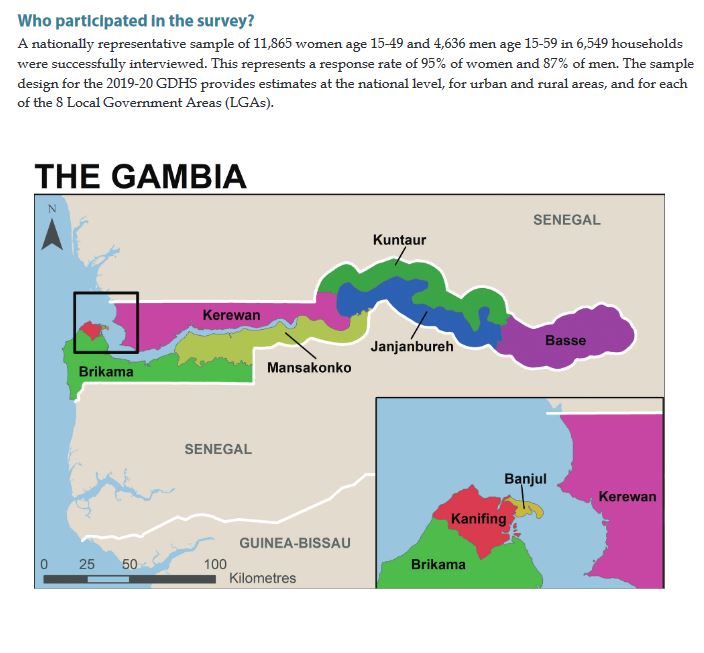![]()
By Mustapha K. Darboe
In December 2015, the Gambian lawmakers passed Women’s (Amendment) Act 2015 banning the practice of cutting off the clitoris of girls. This practice is called Female Genital Mutilation or Cutting. Its advocates like the term “female circumcision”.
In the past few weeks, the National Assembly member for Foni Kansala has provoked a stern debate after sponsoring a private bill to decriminalize the practice. Activists opposed to the practice say repealing the law will make Gambia unsafe for women. The proponents, including Muslim leaders, say the practice is sanctioned by Islam.
In this factsheet, we look at the state and impact of FGM/C in the Gambia and whether or not, the practice has implications on women during childbirth.
Widespread nature of the practice
Female circumcision is a traditional practice common in the Gambia. There is a dispute if it is a religious practice though the majority of religious leaders in the country, including the Supreme Islamic Council, believes it is.
According to the 2019— 2020 Gambia Demographic and Health Survey (GDHS), nearly 5 in 10 girls age 0-14 in The Gambia have undergone FGM/C. More than 7 in 10 women age 15-49 in The Gambia have undergone FGM/C.
Is FGM associated with delivery complications for women?
A 2016 study done by 6 Gambian gynecologists including current Director of Health Services, Dr Mustapha Bittaye, has associated FGM/C to severity in child birth among women in the Gambia— with potential to cause death.
The study observed the delivery of 1, 569 women, at least 77% of whom underwent FGM/C of varying severity. The study was carried out in Bansang Hospital, Basse District Hospital, Bundung Maternal and Child Health Hospital and Edward Francis Small Teaching Hospital.
The risk of heavy bleeding after birth, according to the study, was doubled for women with type I FGM/C, tripled in type II FGM/C and increased by 5-fold for those with type III and IV FGM/C.
The study also associated FGM/C type I with a 2-fold increase in risk for neonatal resuscitation (newborn children who do not readily begin breathing). This risk increases to a 4-fold rise in FGM/C type III.
Another study published in 2013 that examined 588 female patients for antenatal care in hospitals and health centers from Banjul to Brikama said women with FGM/C are four times more likely to suffer complications during delivery.
No FGM in the Gambia?
Since the debate on the repealing of the law banning FGM has created an intense debate in the country. Many supporters of the practice have claimed ‘mutilation’ or the extreme forms of the practice do not exist in the Gambia.
Among those who made this claim was leader of the Gambia Moral Congress Mai Ahmad Fatty.
However, at the event of the national dialogue on the practice, a CADI Omar Secka who took to the stage, have confirmed that he has seen a divorce case involving a woman who had undergone type 3 FGM (sealing also called infibulation). (see 35:25s).
Among the participants of the 2016 study conducted at 4 major health facilities in the country, at least 704 participants underwent types 2 FGM which includes partial or total removal of the clitoral glans and the labia minora. And 132 participants underwent type 3 FGM infibulation/ sealing.
Mai Ahmad Fatty, one of the proponents of female circumcision, told a weekly online show, Kerr Fatou, a niece of his who underwent FGM type 3 could not consummate the marriage for three weeks because she was sealed.

According to the latest demographic and health survey (DHS) by the Gambia Bureau of Statistics, 78% of women aged between 15 and 49 years had undergone the harmful traditional practice. The most common form of FGM practiced in the Gambia are Type II and Type III.
Can FGM cause death?
There were a number of incidents of excessive bleeding causing death of children during circumcision. In 2016, a few months after anti-FGM/C law came into being, a child reportedly died after being cut in Kiang Sankandi.
Dr Babanding Daffeh, a gynecologist at the EFSTH, who also participated in the conversations at the national dialogue on FGM/C, has reported seeing an incident of deathof a child caused by FGM/C in 2015.
In 2016, the dean of the International Open University— Dr Bilal Philips— made a video saying he heard a report of a child dying of excessive bleeding after circumcision.
Be our accomplice! We rely on donor funding and donation from individuals to support our investigations. Click donate to support our work!


